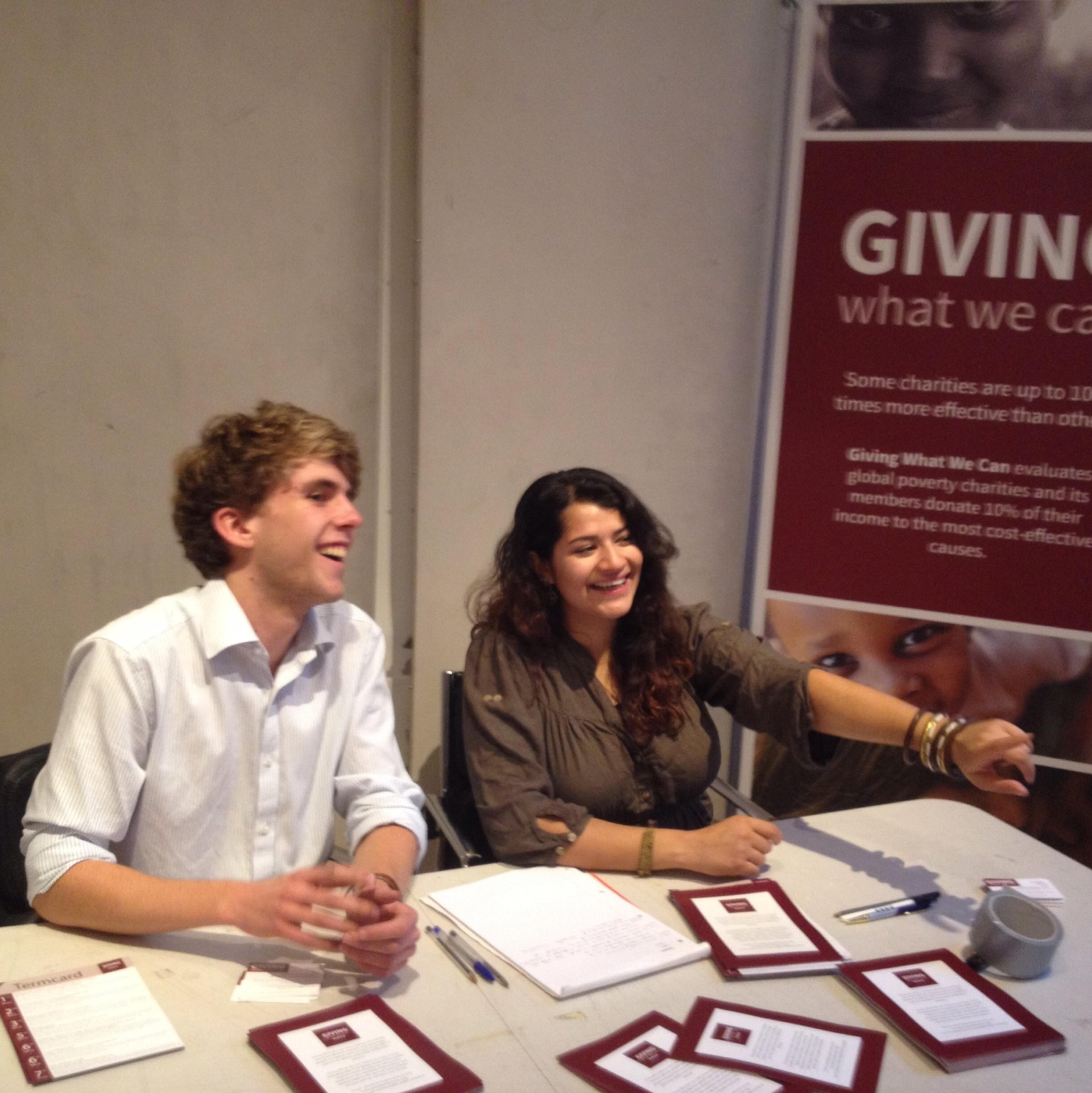It’s the equivalent of offering to unload the dishwasher when secretly you know full well your mother has already done it. All the brownie points, none of the dirty hands. As a student member of Giving What We Can, you’re only expected to give 1% of your money to effective charities: perfect. See you in Heaven. And pass the beer.
So the first thing to bear in mind if you’re a student who wants to get involved is that it’s not all that daunting. Giving 1% is more about feeling part of the community and getting in the habit of giving regularly: 10% can wait till you’re a big dog graduate who wouldn’t dream of being part of the zombie-like horde which descends nightly, greedily on the Itsu closing-time sale.
If you’re already tucked in that proud Venn diagram overlap of sushi lover and bargain hunter, I have nothing to teach you. You are the Übermensch: gorge your cultured self on the Orient’s finest and spend the savings on malaria nets.
But if you’re an average schmuck who splashes out one week and can’t pay your library fines the next, listen up. You can make a difference without sacrificing the filthy drunken lifestyle to which you’re accustomed. Here’s how.
Make the most of your giving

You’re not going to be wiping out schistosomiasis with a student loan (and if you are, for the love of God get in touch). So maximise your donation. There’s some debate over how effective it is to take part in a matched giving scheme, but in general this is a good avenue to go down.
Particularly in universities, campaigns like the Big Match – “You give ten pounds, and we’ll give ten pounds” – raise awareness and cash like nobody’s business. Rope clubs and societies in. Try getting university staff on board. It’s said that in life you get out what you put in, but with matched giving, you get double. Easy. And don’t forget that university is a great opportunity to get people thinking about the most effective ways of helping people: you’re surrounded by open-minded idealists with big futures ahead of them.
Little and often
Military marksmen practise reloading their guns every day. Not because they’re worried Abu Bakr Al-Baghdadi is going to rush out of the showers, but because it ingrains the habit into them so that they don’t even have to think about it in a warzone.
This must be your approach to charitable giving. Get used to giving away a very small proportion of your earning as soon as you get them. However many bullets seem to riddle your bank account later in life, you’ll be spared some of the trauma of charity if giving comes naturally. And remember: regular donations are charities’ lifeblood. Everyone wins.
Positive mindset
There’s an overwhelming amount of evidence to suggest that giving makes you happier. So if you’re not convinced that curing someone of a tropical disease for 50p is a good use of your money, it might interest you to know that donating will warm your black little heart enough to significantly increase your wellbeing in a variety of ways. We’re not very good at predicting how money will impact our individual happiness, but what we do know is that as long as you’re earning an average amount, getting more won’t make you feel much better – giving some of that money away is a much surer route to better health and happiness. It’s science.